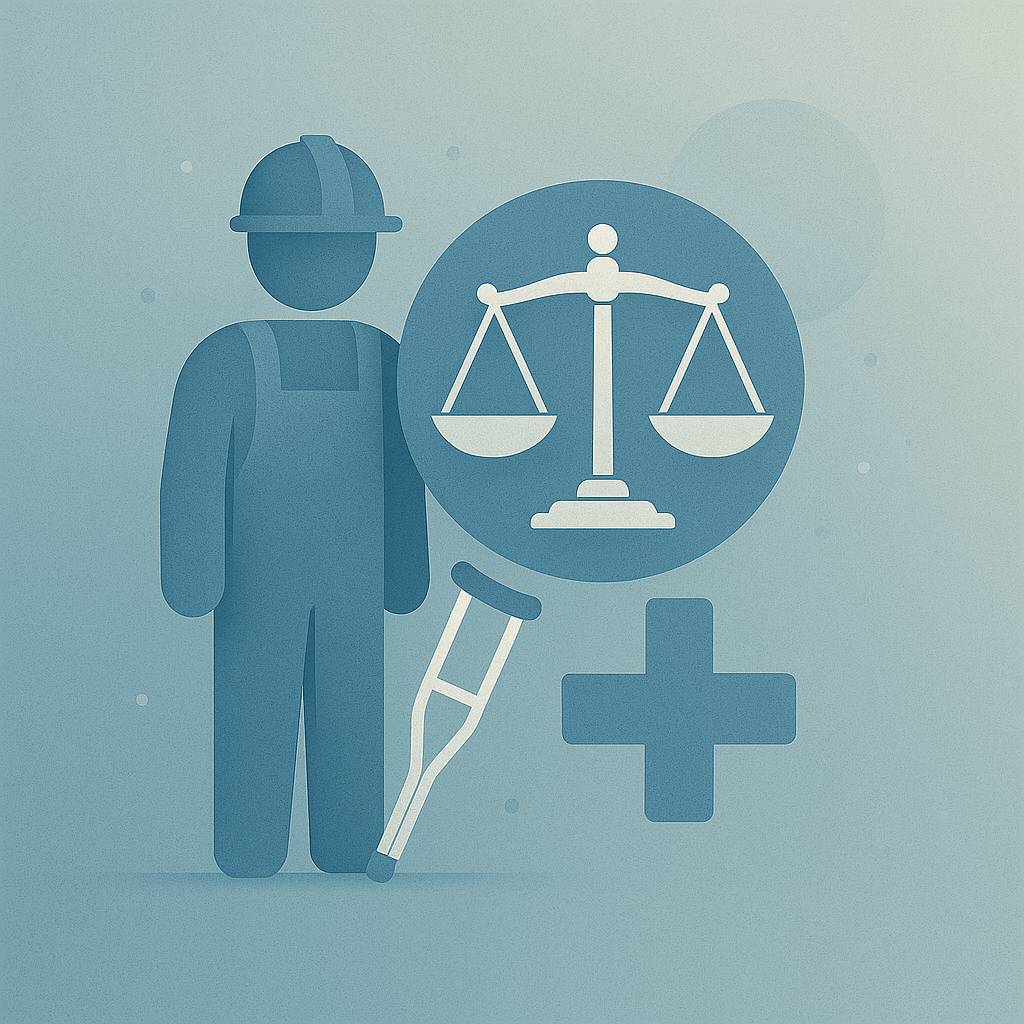Can you receive both? How offsets work, what to expect, and where legal conflicts can arise.

Navigating long-term disability (LTD) benefits is complex enough. Add workers’ compensation into the mix, and things get even trickier. If you were injured on the job and also qualify for LTD through your employer, you might wonder: can you receive both? And if so, how do they affect one another?
In many cases, the answer is yes—but receiving both can lead to complications around payments, legal definitions, and conflicting medical evaluations. Knowing how the systems overlap—and where they often clash—can help you avoid delays, reductions, and disputes.
You Can Often Receive Both—But Expect Adjustments
Workers’ compensation is a state-run system that provides medical coverage and partial income replacement for job-related injuries or illnesses. LTD, typically offered through your employer’s private insurance, covers a wider range of conditions and usually begins after short-term disability ends. Each uses its own criteria to define “disability.”
You may qualify for both simultaneously, but don’t expect to receive full benefits from each. Most LTD policies include offset provisions, allowing the insurer to reduce your monthly LTD payout by the amount you receive from workers’ comp. It’s meant to prevent duplicate payments—but often results in a lower LTD benefit.
That said, many claimants don’t fully understand the difference between the two systems or may refer to one when they mean the other. You should apply for both if eligible—but not rely on either one being approved. Offset calculations come later and shouldn’t influence your initial decision to file.
Understanding Offsets, Overpayments, and What Can Go Wrong
Offsets may sound straightforward but are often mishandled. If workers’ comp is paying part of your wages, your LTD insurer will usually pay the difference—but insurers don’t always calculate this correctly. Overpayments are common, and claimants may be asked to repay large sums, sometimes totaling six figures.
Lump-sum workers’ comp settlements complicate matters further. If not structured properly, the LTD insurer may count the full amount as income and significantly reduce or eliminate your monthly benefit. Without legal advice, it’s easy to sign an agreement that unintentionally jeopardizes your future LTD payments.
Where Legal Conflicts Can Arise
These two systems use different definitions of disability. Workers’ comp might say you can do “light-duty” work, while your LTD policy might evaluate whether you can perform your “own” or “any” occupation. These standards don’t always align and can result in conflicting evaluations.
Insurers may also interpret evidence differently. A modified work assignment may satisfy workers’ comp requirements, yet your LTD insurer could see it as a reason to cut off benefits. Surveillance, IMEs, and inconsistent medical records only raise more flags—especially when systems disagree.
Even social media posts or everyday activities taken out of context can be misused. A single photo or comment might be seen as proof you’re capable of more than your file suggests. Staying off social media—or being extremely careful—is a smart precaution.
Why Legal Help Can Make a Big Difference
When both systems are involved, small errors can cause big problems. An attorney who understands both LTD and workers’ comp can help structure settlements to minimize offsets, resolve overpayment disputes, and ensure benefits aren’t lost due to administrative errors or misinterpretation.
Importantly, LTD and workers’ comp are different legal systems—with separate definitions, standards, and decision-makers. A workers’ comp lawyer may not understand LTD policies, and vice versa. If your case is headed toward litigation or involves a settlement that could impact future benefits, hiring someone with the right expertise is crucial.
Final Thoughts
Managing both LTD and workers’ comp can feel like navigating a minefield. But understanding how the two systems interact—and conflict—can help you make better decisions and protect your benefits. If you’re applying for both, keep detailed records, don’t sign any settlement paperwork without guidance, and be cautious about what you post or share. These systems aren’t designed to work together seamlessly. Legal support can help you bridge the gaps and avoid mistakes that could jeopardize your financial recovery.
